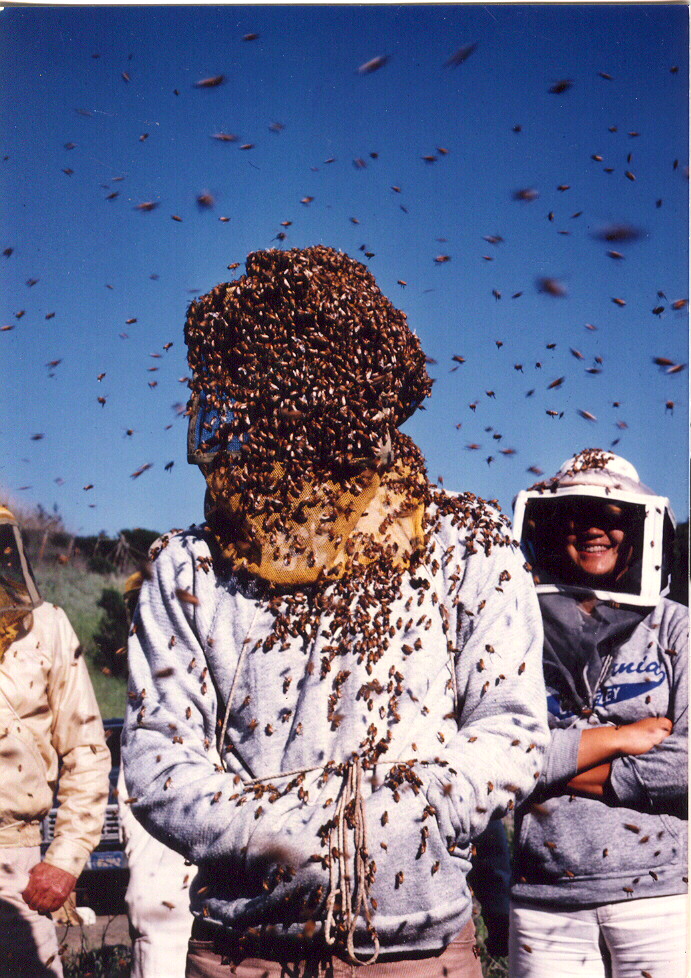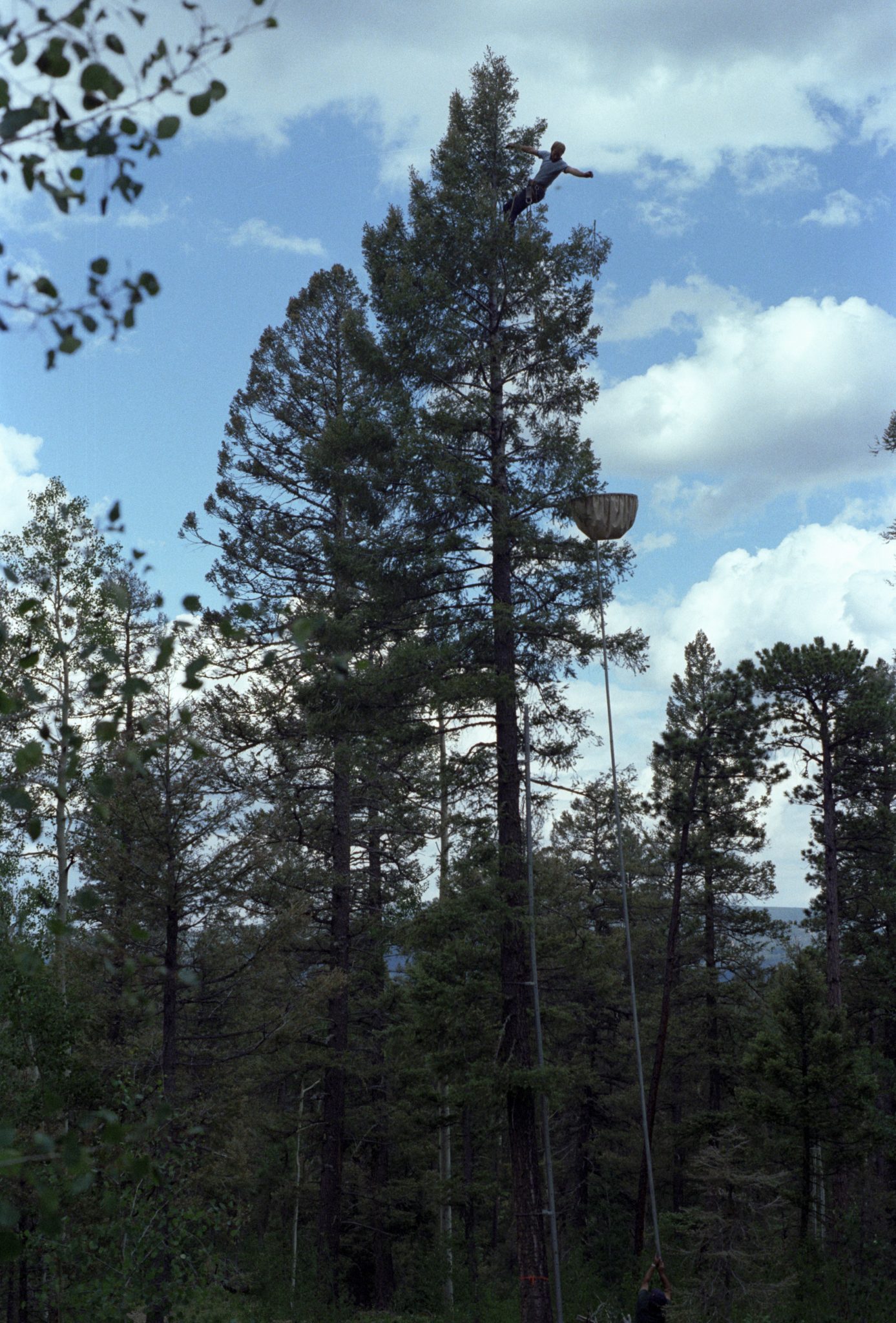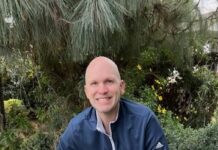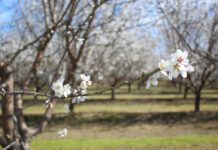
Kent Daane, UC Cooperative Extension entomology specialist at the Kearney Ag Center in Parlier, always had an interest in insects and the forest. But he became enamored with biological control through the extravagant stories of Dr. Carl Huffaker, a key figure in UC history in terms of biological control, who was not only the father to one of Daane’s high school friends, but also became one of Daane’s mentors.
“Carl would travel to all kinds of exotic places,” recalled Daane. “He was with the first scientific group to go to Russia after WWII, in one of the first groups to go to China as it opened up after Nixon’s trip there.”
Huffaker came back with stories of being constantly followed around in China, Russian KGB agents going through his room and suitcases, and of being served vodka to get US agriculture secrets. “It seemed like this incredible life.”
Daane would ultimately experience his own travels, including to China, South Korea, and most of the major winegrape growing regions on the globe.
Upon the advice of Huffaker, Daane earned his undergraduate degree from UC Santa Barbara in the zoology/ecology program and started his career as an insect ecologist, with an initial goal of forest entomology. After graduating from UC Santa Barbara, he got a job at UC Berkeley as a lab assistant and spent nearly a year in Klamath Falls, Ore., where he studied the spruce budworm. His team camped most of the time and worked out of a makeshift lab beneath a local restaurant.
“We’d drive out to the forest and climb 80 to 90 feet up into the tops of trees to collect samples, and then bring them back to the lab to look at the life history of this forest insect pest,” says Daane.
Budgetary constrictions resulted in Daane being let go for a few months, only to be hired back on for the same project and assigned to Jemez Mountains, New Mexico. But, upon his return, he received the harsh news that there just weren’t any jobs in forest entomology at the time.
Daane turned to the Entomological Society of America (ESA) news bulletin he received in the mail. “Orchard IPM was the most common field being advertised,” says Daane.
Don Dahlsten, a mentor in forest entomology, had encouraged Daane to get an advanced degree, and Daane decided it was time for graduate school. He selected UC Berkeley, coming from a family in which two previous generations also attended Berkeley.
“My father drove me around and showed me the places he had lived as a child and when he was a student [at Berkeley]. He said, ‘Why don’t we buy a house together? That way, if you’re ever hired by Cal, you’ll have a place to stay,’” said Daane.
Daane declined on the grounds that the university never hired its own people. Shortly after graduation, he was hired by Berkeley.
“It was the worst financial decision I ever made.”
Crash Course in Farming
When Daane began working at the Kearney Agricultural Center (now the Kearney Agricultural Research and Extension Center) in 1989, he received a crash course in farming from his staff research associate, Glenn Yokota, who was bold enough to educate Daane on farming when everyone else was too embarrassed to mention it.
“He kind of taught me about all the things I was so stupid about. I knew nothing until I actually started working with farmers,” says Daane.
He and Yokota started projects on grapes and stone fruit, worked a lot with the team at Kearney, helped upgrade integrated pest management (IPM) practices, and, finding that there seemed to be a constant evolution of invasive pest species, he moved from grapes to almonds, to pistachios, and more.
For Daane, who’s as entrenched in academia as he is with advising growers and farm advisors, the change in faculty is a constant. Where there were once roughly 20 faculty on the Berkeley campus who worked with insect pests in urban, forest, and agricultural settings, there are now only a few, with some of them holding significant administrative positions.
“There’s still a great group of entomologists in the UC system, both on campus and in the counties. I just wish there were more,” said Daane. “The budget is a little tighter than it was before, but we need more positions and more support.”

Retention of cooperative extension farm advisors and specialists is simply becoming harder. It’s not for lack of interest, but rather UCCE budget constraints are not only up against California’s cost of living but the offerings of larger, private companies.
This also falls on the heels of a significant shift in the family farm. Family farms, while they still exist, are fewer in number, but much larger in size.
“A lot of the farmers we work with are still family farms, but they just happen to own thousands of acres,” said Daane.
This has changed an aspect of traditional farms calls, where several smaller growers would need the help from UCCE experts. Now both family farms and corporate farms have highly skilled workforces, with employees often having post-graduate degrees in agricultural related fields. This has upped the communication level between growers and farm advisors and specialists, allowing them to communicate more as colleagues.
Farm Advisors Spread Thin
The reduction in UCCE personnel may have simplified some aspects of communication amongst groups, but it has also increased the territories for which UCCE farm advisors and specialists are responsible, often up to four counties for some farm advisors. Aside from this, administrative duties required by CE specialists and advisors are becoming more complicated and time consuming. While the younger, incoming classes may take this as today’s norm, those who have been with the university system for the last few decades, like Daane, have struggled more with the changes.
Despite this, Daane remains a champion for the hiring of more farm advisors that work directly in agriculture. Once focused more on farm-based based issues, UC’s Agriculture and Natural Resources (ANR) has grown to include more advisors and specialists focusing on a different set of issues, including air and water quality, landscape ecology, and other urban and urban family concerns.
Daane applauds the efforts in this newer arena but also doesn’t want to see the loss of farm-oriented extension, or the continuity between his soon-to-be-retiring generation of experts and those just entering the field.
“I’d like to hire someone I can work with before I retire, so I can introduce them to the different commodities and cooperating farmers to make those initial introductions, which could really help out a young person’s career getting started in the right direction,” explained Daane.
Academia aside, Daane dedicates himself to his clientele of growers and farm advisors. He notes that there’s a shift in mentality in terms of pest damage and sustainability, with more legislative restrictions on pesticide use, and growing public interest in organic produce.
“I think that if we’re going to start adopting sustainable practices, we have to accept some crop damage levels that are a little higher than what we’ve been accepting recently,” says Daane. “It seems like we have these zero tolerances out there still.”
Though his career may have been sparked by fantastical stories of the East, Daane’s career has always circled back to the farms, growers, and advisors right here in California. “California is one of the great agricultural centers of the world.”















